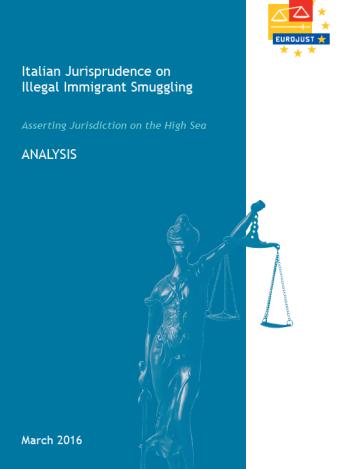
This legal analysis provides an overview of relevant Italian case-law on illegal immigrant smuggling through the sea, highlighting the main obstacles faced by Italian prosecutors in dealing with such cases and solutions emerging therefrom. It further highlights the operational guidelines developed by the Direzione Nazionale Anti-Mafia (DNA) to coordinate the action of all authorities involved and optimise their efforts (hereinafter Operational Guidelines). The Operational Guidelines are briefly presented in Annex I to this document.
This product is based on the examination of a representative sample of 10 court cases amongst those made available to Eurojust by both Italian Prosecutor’s General Office on the occasion of the 8th meeting of the Consultative Forum of Prosecutors General and Directors of Public Prosecutions of the Member States of the EU and the Italian National Member at Eurojust. These cases relate mostly to the challenge of asserting Italian jurisdiction on the high seas. They reflect a shift in the Italian jurisprudence that allowed prosecutions to move forward, thus filling in what would otherwise give rise to an impunity gap. Annex II provides a summary of the most emblematic court decisions assessed.
The focus of the analysis is case-law. However, occasionally few references are made to information gathered from other sources2 with the purpose of further contextualising the Italian efforts in countering the crime type.
Finally, it should be noted that this work is part of a broader project conducted under the auspices of the Thematic Group on Illegal Immigrant Smuggling and intended to analyse the obstacles and solutions in investigations and prosecutions stemming from the case law of other Member States most engaged in administering justice in relation to illegal immigrant smuggling.
The final aim and envisaged product of this project is to reach – on the basis of an integrated analysis of all the domestic legal and judicial approaches assessed - a holistic overview of the key challenges and best practices in prosecuting this crime across the EU.
